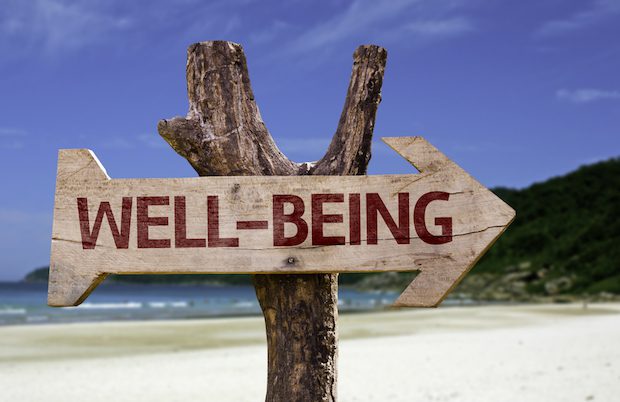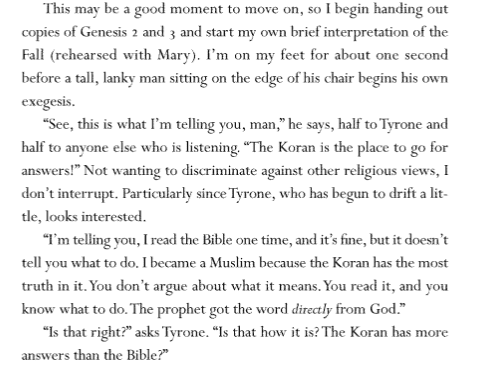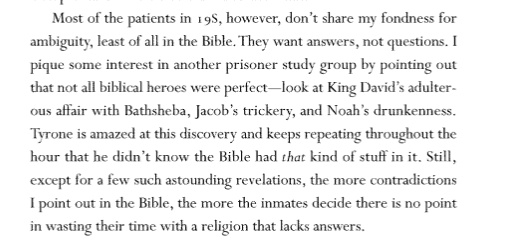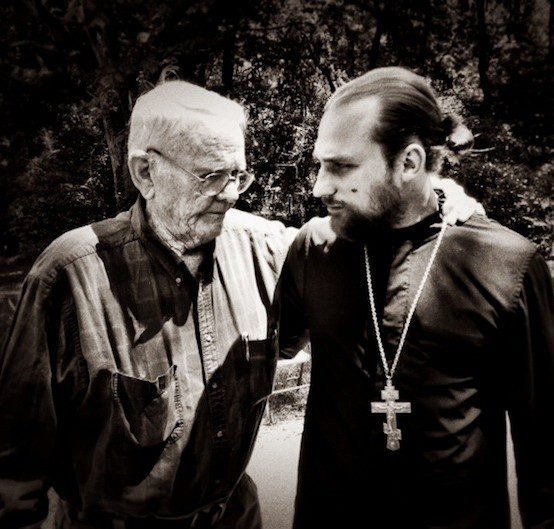‘The Therapeutic Is Our Ultimate Terrorist’

Reader Cavin, on the culture of resentment that has taken hold among the white working class:
My uncle owns several factories that pay good wages and offer solid benefits. Over the course of the last decade, he’s experienced increasing difficulty finding decent employees among the white working-class folks that make up 95% of the population in the areas where his factories are located. About half of all applicants can’t pass a drug test, even though he stopped screening for marijuana. If they do pass the drug test and commence work, many employees miss work for no reason, take hour-long bathroom breaks, and pay little attention to the quality of their work. By contrast, my dad missed 12 days of work in his 40 years with GM, and put in a solid 10-hour day every day. I can’t even recall the last time I took a day off from work for an alleged illness. If I’m sick, I just work from home.
A sense of victimhood and resentment have replaced self-reliance and diligence as the prevailing characteristics of working-class life. Some of the blame for this is attributable to elites who promoted globalization at the expense of protecting the jobs of American workers. But much of the blame is attributable to the toxic messages that started to pervade these communities in the 1990s. My uncle met last week with a Chinese entrepreneur who’s looking to buy his business and move it to Guangzhou. In another era, he would pass it down to his sons. But his sons don’t want the hassle of trying to get white working-class people to take responsibility for themselves and take pride in making a good product. By my observation, many of the woes faced today by the white working class are self-inflicted.
This is what Kevin D. Williamson (who grew up poor in West Texas) has written about with painful bluntness, and what he caught hell for from some on the Right, including me.
What do we do with, and how do we think about, Americans of all colors who aren’t fit to hold a job? Is it globalism’s fault that Cavin’s uncle can’t find reliable workers, and is on the verge of selling it to a Chinese who will move the business to a part of the world where one can?
It is just and right to ask power-holders in our country — in this case, Cavin’s uncle — to think of his responsibility to those around him. It is also just and right to ask those who don’t have power, relative to the wealthy, to think of their responsibilities to those around them, and to themselves.
I heard from a friend this morning who told me a story about a family we both know. A solid white working-class family. In the youngest generation, they’ve started falling apart in a way that will be hard to fix. It’s the usual Charles Murray Coming Apart thing: the loss of being bound by a sense of religious or traditional moral obligation, followed by a loss of a sense of the importance of marriage, especially for childbearing, and on down the line. Maybe they’ll pull out of this spiral, but odds are against them. I would bet money that some of them are thinking of the trouble they’re in as something that just happened to them. It’s like people who live in a nice house, but who wake up one day to discover that the yard has turned into a jungle of weeds, and the roof is leaking, and termites have eaten out the walls … and they wonder who came overnight and destroyed their nice house.
I tell you, the older I get, the more I understand why my father was such a hard-ass about certain things. He knew, either intuitively or from experience, that if he allowed certain kinds of thoughts or behaviors to take root in our family (meaning in his kids), that all that he worked so hard for would be put at risk. I rebelled against a lot of this as a teenager, but eventually came around. Many of the things he believed and did — things having to do with moral conduct — struck me as blind habit.
He doesn’t even think about this stuff! I said to my scandalized 18-year-old self. He can’t give any reasons for why he expects us to do these things!
He couldn’t, not really. It was nothing more than “because that’s the right thing to do” or “because we don’t act that way,” or sometimes, “because that’s what the Bible says” (though truth to tell, he didn’t really know what the Bible said). And so I, the intellectual, dismissed it as arbitrary taboo-setting.
I was wrong. There was a lot of practical folk wisdom in my dad’s following prescription. He couldn’t give a rational account of a lot of this stuff, but he remembered what it was like to be dirt poor during the Depression, and he remembered how little margin for error poor country people like him and his family had. You couldn’t go through life with everything being experimental. You would suffer, and maybe even die. He told these stories to us when we were kids, and I didn’t really see the point back then. Yes, they were interesting, mostly, but that was then and this is now.
I see now that these stories were my father’s account of why he believed what he believed, and why he laid down a relatively strict moral code for his kids. They were in his bones, put there by privation, by hunger, and by all kinds of hard experience.
In his great book The Wayfinders (the title of his collected 2009 Massey Lectures), the ethnobotanist and cultural anthropologist Wade Davis explores what the modern world has to learn from primitive cultures we too often dismiss as backward. He writes:
Our entire existential experience as a species over the past 50,000 years may be distilled into two words: how and why. These are the departure points for all inquiry, the slivers of insight around which cultures have crystallized.
All peoples face the same adaptive imperatives. We all must give birth; raise, educate, and protect our children; console our elders as they move into their final years. Virtually all cultures would endorse most tenets of the Ten Commandments, not because the Judaic world was uniquely inspired, but because it articulated the rules that allowed a social species to thrive.
My dad wasn’t so unusual among white working-class people in our Southern town back then, though he was stricter than most, in my recollection. That was a good thing. In The Little Way of Ruthie Leming, I write about a time he and my mom had to humiliate my sister when she was in high school, because she disobeyed their order not to go down to the river, where her classmates would get together on the weekend and get loaded. She wasn’t getting loaded, but that wasn’t the point: the point was that she disobeyed our parents.
They turned up one night at the river, found her there, and forced her to come home with them. They were stricter on her for the rest of her high school career. A year into college, Ruthie came home one weekend and told them how grateful she was for their strictness. A lot of her friends whose parents weren’t so strict had failed out of college, because they lacked the kind of self-discipline that Mama and Daddy had instilled into us. She said the words to them then that she could not say in high school: Thank you.
Today I say those words too. I say them with special emphasis now that the ethic my folks embodied is slipping away.
No social species can survive if its men (and women) are too drugged out and undisciplined to hold a job. No social species can survive if its people cannot make the adaptive imperatives that Wade Davis says all cultures must make. My dad was a civil servant and my mother was a school bus driver. My folks never had much money, and were, as I see now, living much closer to the edge than they let us know as kids. They didn’t want to burden us with anxiety. I also understand why my father instinctively imprinted the same taboos on his children. His basic code was:
- Work hard, and above all things esteem those who do
- Respect yourself and those around you, especially your elders
- That means dress up for church, say “yes ma’am” and “yes sir,” “please” and “thank you,” and keep a clean yard
- Be honest and fair
- Do not lie, and that means in all things be true to your word
- Be generous to others, but never expect anybody to give you anything
- Kids need mamas and daddies, but a mama and/or a daddy who puts their own interests above doing right by their kids are of no account
- Do not keep company with people who don’t believe these things and live by them, because they will only bring you down
You will note that “God” is not in this list. He believed in God, but his God was pretty much the transcendent guarantor of this code, and nothing more. I don’t say that to put him down. I’m thinking of the account in The Close, the seminary memoir of Chloe Breyer, an Episcopal priest, who wrote about how she tried to do Bible study with prisoners in the medical ward of Bellevue. Breyer, daughter of the Supreme Court justice and the product of an upper middle class upbringing, was baffled by why these hard men weren’t interested in the gray, nuanced reading of Genesis she gave them, and why instead they related to the hard-edged moral teachings of a Muslim convert among them. Excerpts:

She continues, but it’s no use:

The only thing that is going to bring working-class people who aren’t fit to hold factory jobs back from their ruin is strong religion, a religion that has answers. True, my dad didn’t have strong religion in the literal sense, but he had an unquestioned belief in sacred moral order — in the existence of right and wrong, and of the obligation of all people to live according to its precepts. In this way, my father probably would have had more in common with that Muslim convert prisoner than he would have done with Chloe Breyer.
Why do I tell you all this today? Because it gives you some insight, I hope, into why idiotic things like universities allowing students to bring “emotional support animals” onto campus, and queer couples deconstructing gendered parenting. We are destroying the rules that help a social species thrive.
No, the Tao does not say “thou shalt not bring dogs to campus.” What’s happening is what Philip Rieff decried as “the triumph of the therapeutic.” That is, Rieff saw that strategies of easing anxiety and eliminating pain were destroying the kind of authoritative rules and taboos that were necessary for people to thrive in society, and for cultures to endure. He saw a great civilizational transition underway, one in which we left behind the creedal culture of the Bible (Rieff, by the way, was not a believer) for a therapeutic culture of feeling. Writing in the 1970s, in his book Fellow Teachers, Rieff foresaw the counterculture’s political violence merging with the therapeutic ethos emerging in American institutions:
[I]t is mainly from the top down that therapeutic and terrorist penetrate modern culture. I expect the two types to merge, medicine and politics into political medicine, the therapeutic dominant and not more indebted to Freud than to any other theorist of therapy. Cleared for action without interdict [that is, “thou shalt not”], the therapeutic is our ultimate terrorist.
I read that quote in an essay in the newly published Anthem Companion To Philip Rieff. The essayist, Richard H. King, says that Rieff was too pessimistic, and didn’t see how the counterculture would not only fade away, but in fact there would be a backlash in the form of the Religious Right. It’s funny, but King’s essay, hot off the press, seems badly dated. The Religious Right has all but collapsed, and the therapeutic terrorists are blowing up sacred order in universities, families, even the male-female binary.
They’re doing much of this under cover of medicine. For example, getting a doctor to write you an excuse for having your wriggly wubbie on campus, and the university agreeing to it. The key thing here is not that people want to bring dogs to campus. The thing to pay attention to is that they’ve involved the medical profession to say that what they want to do is medically indicated — and a university has accepted it.
Or, vastly more seriously, medical and school authorities facilitating the breakdown of the gendered part of the human personality under the principle that whatever one needs to feel safe, one should have. A friend told me the other day that in his kids’ school, in a small town in the American South, a boy has declared that he wants to wear dresses to school. A minor thing on the surface, but a challenge to the sacred order of that community, and how its young males and females understand maleness and femaleness. In order to facilitate the sense of well being of this emotionally disturbed child, the community will almost certainly accept this without protest. And another barrier will fall.
My friend lives in a relatively poor part of the South, one where there are a lot of kids growing up without fathers in the home. Lord, how rich my sister and I were growing up: we didn’t have much money in our family, but we had a father and a mother in the home, and our working-class dad lived by and taught us a basic code that would allow us to thrive. We weren’t the only ones, either. Daddy was no prude, but he was moralistic — too rigid at times, as I’ve written. Still: it took me most of my adult life, and seeing the world that the Boomers and my generation (Gen X) made for our kids, to understand that my father was far more realistic about life and how to live it than most people today.
If you were lost in a dark wood, it would not be easy to go with my father, but his way would keep you alive, protect you from the wild animals and the quicksand, and maybe even lead you back to the road. You’d be far, far better off with a man like him than with these therapeutic terrorists, or with the ranting ideologues of the Left and the Right — white, black, and otherwise — who blame everybody else for their own failures. The great mistake my dad made was to think that his ethic was stronger than it actually was. He was, in his way, like the final pagan generation: he never saw the fall of his ethos coming.
We are creating a fragilistic society. It is happening from the top to the bottom, from Yale to Appalachia. Yes, people in power are doing this to us, but we are also doing it to ourselves. All of us.
We can’t go on like this. Many of us won’t, because reality will smash them. Some of us won’t because we were able to see the ruin ahead, and turn away from it. Whenever people start telling you to be “inclusive,” you had better ask what, exactly, they are asking you to include. It could be the carrier of dysfunctional cultural practices that, if they spread within your community — and, most importantly, your family — could mean its downfall. Look around you: it’s happening everywhere.
Anyway, yeah, I’m cranky about this garbage. But I have my reasons.
UPDATE: I see my father, and the Orthodox way, as being reliable for the same reasons. Here is a photo from four or five years ago of my late father and my then-priest, Father Matthew Harrington:

Subscribe for as little as $5/mo to start commenting on Rod’s blog.